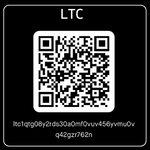TOKENS Magazine 2022 print edition https://tokensmagazine.com/images/2022/26-basecamp-El-Salvador.pdf
In the Land of the Jewel, co-mingling of Aztec, African, and European has produced a bold blue-blooded people.
Now El Salvadorans have added another layer of eclectic vibrancy to their emblem - the orange Bitcoin.
Nearly two million Salvadorans remitting millions of dollars daily from the US to El Salvador is one of the major drivers of the country's gross domestic product.
Back in the 1990s, around the time
when William was born, El Salvador
had been going through civil war
after civil war. No need to enumerate
all the destruction, turmoil and
instability war breeds on any country,
much more the smallest country in
South America of 20,000 kilometers
squared.
The government had struggled to get
a handle on its currency's supply and
distribution.
El Salvador rises steeply, sloping
more than 30 degrees off the Pacific
Ocean floor. Adventure calls, as
those watersheds make for the most
serene pools at the bottom. At the
same time a drop of rain can cause
massive mudslides.
To make it through ever increasing
trade restrictions and embargoes, El
Salvador had to privatize its banking
sector. The decimation of its dollar
was largely driven by an over-run
remittance industry pouring in with
requests for foreign exchange.
Overnight, a monsoon of massive
liquidity had flooded the country
with US notes faster than El
Salvador could print its own bills.
A shortage of physical local
currency, left banks unable to supply
the exchange pools. Under extreme
monetary pressure, in 2001, El
Salvador switched to the USD as its
national currency.
Precisely 20 years later, on
September 7, 2021, El Salvador
adopted Bitcoin as its legal tender,
attracting more private money
investments to its coasts.
The bigger moment was June 5,
2021 when Jack Mallers stepped on
stage at the Bitcoin conference and
introduced President Nayid Bukele
who announced via video stream
that El Salvador would be banking on
Bitcoin.
Three days later, June 8, 2021, at
7:49PM, Bukele posted a tweet of
his signature and presidential seal
on the bill that officially made
Bitcoin the supreme global currency.
El Salvador
President Bukele’s invitation wasn’t
only to crypto companies, El
Salvador opened for any all business.
Since that moment, more than one
billion dollars of investments have
rolled into the country.
Bitcoin Day, September 7, 2021, El
Salvador air-dropped $30 in Bitcoin
to every citizen. In an instant, 6.5
million El Salvadorians experienced
"financial inclusivity," which
according to Mallers is a "basic
human freedom."
Bitcoin week is turning into Bitcoin
month and from here on out
El Salvadorians will massively shift
from 70 percent unbanked to 100
percent Bitcoin owners.
Contrasting that same timeline when
China expelled foreign-owned Bitcoin
mining operations from the republic,
dragging more than 40 percent of
Bitcoin networks offline, and
crushing Bitcoin's hash rate.
In a matter of moments Bitcoin nosedived from it's $64,000 highs to
somewhere under $29,000.
In mere months the whole world
shifted, not just platectonically but
the global monetary system
positioning is teeter tottering on a
dime. and
guess who is well positioned to grab
on to the opportunity on multiple
fronts.
Not only is El Salvador
making Bitcoin legal tender a matter
of currency dominance, the country
is now the singularly the best place
on the planet for Bitcoin mining and
stability of the entire blockchain
structure.
The argument about Bitcoin and
clean energy is answered by El
Salvador.
The issues with sovereignty and
cross border payments are
addressed by El Salvador.
We could explore each of these
fronts separately, but time is gone,
and after pulling the magazine off
the press for the third time, we must
go to print. And so I am jamming as
much as I believe you can tolerate
into this one
article, knowing full well that I'm
leaving you in a maze with no exit,
and you'll mentally be twisting and
turning to find a way to get out of
this story,
The debate on whether Bitcoin will
take over the USD is already solved,
duh, Bitcoin is trading near $50,000
to $1USD.
but the intrigue is too vivifying. Here
would be a good spot to stick a book
marker or crease the edge of this
page. I'll be here…
/by Charlene Brown
El Salvador is on its way to replace
the USD with Bitcoin as its national
currency.
The impression is that on September
7th El Salvadorians woke up and
were told to burn the USD bills. No,
Bitcoin was adopted as legal tender,
a completely different language than
making Bitcoin its national currency.
People gradually migrating to
cryptos, isn't the worry. When
governments adopt Bitcoin as legal
tender or even consider minting their
own national coins, it threatens the
International Monetary Fund, a bank.
Without getting into the mechanics,
El Salvador has a credit line of $287
Million with the IMF.
Upon El Salvador’s June 5th Bitcoin,
the IMF was shocked at the news,
but they were more irked at Bukele’s
mic-dropping moment.
The IMF was in on-going talks with El
Salvador around that time.
During a briefing, ahead of a June 10,
2021, meeting with Bukele, when
confronted an empurpled Gerry Rice,
spokesman at the IMF laconically
responded
about the IMF’s position on El
Salvador going crypto: “What I would
say is that adoption of bitcoin as
legal tender raises a number of
macro-economic, financial and legal
issues that require very careful
analysis,” Rice stated.
The IMF maintains that “crypto
assets pose significant risks,” but
has yet to define those risks or what
measures are being used to evaluate
Bitcoin's risk levels in arriving at
such alarming conclusions.
The IMF posture leans toward
impeling lawmakers into drafting
unchartered “regulatory measures,”
against cryptocurrency and tokens,
which the IMF wishes would grant
traditional banking agencies more
authority in “dealing with them,” Rice
curtly stated.
Banking on Bitcoin, though, El
Salvador is already hinting it could
get out from IMF dependency.
Projected annual GDP growth could
rise over 5 percentage points during
year-one roll out.
For El Salvadorians themselves,
Bitcoin adoption has been quite
natural. Mind you El Salvadorians
had been using Bitcoin and other
non-banking mechanisms to trade
long before crypto was popularized.
Bitcoin was the people’s choice.
For a people whose income streams
and everyday spending rely as
heavily on remittances, Bitcoin
migration and adoption comes down
to basic economics.
If William sends $100USD to his
mother in El Salvador, after fees,
fees, and more fees, when she
collects the bills at the remittance
counter, she might take home $63.
And that's after William has already
paid the extra $7 to send the money
in the first place. Walmart charges
around $4 per $100 in remittance
fees, but still once the money hits
the shores of El Salvador, every local
entity from national to municipal
must get a portion of that
remittance, as well as the trading
post must collect their cut.
We’re not limited to a single
pathway to the solutions that will
bring the whole world out of
financial oppression. El Salvador
means more than just buying and
selling using Bitcoin.
It means more than William
sending $100 worth of Bitcoin on
the Lightning Network and his
mother collecting $100 Bitcoin on
the other end. It’s more than
backing out of the USD as national
currency.
There are precious coins to be
mined in the Land of the Jewels,
and Tokens.
Nayib Bukele would have been
crowned King Nayib, of Bitland
June 1st, 2019 had his kingdom
been a monarchy.
As President of the Republic of El Salvador
a democratic state, Nayib will serve a 5-year
stint, not a life span wearing a royal crown.
Months into his presidency, that coronation did come.
Nayib and his wife Gabriela welcomed their first child, a
darling girl, Layla, August 2019, making that the year
Nayib rose to power as president and the year he took
flight into fatherhood.
/by Charlene Brown
Presidente de la
His own late father, Armando Bukele, was an El Salvadorian businessman of
Palestinian heritage. His mother, Olga Ortez de Bukele, prepared Bukele for the
challenges and the jubilation of the journey.
Now 39, Bukele's bold boyishness bequeaths him a free-reign style of leadership
that begets much discontent from his political rivals.
Jack Mallers, in his speech at Bitcoin 2021 Miami conference (minus the
cuss words), stated that he will make it a non-debatable choice for the
people of El Salvador to use Bitcoin because of Strike, a fee-less
technology he developed for sending around the globe, instantly. Using
Strike, Bitcoin and crypto trades settle on the blockchain instantly and free
globally.
The issues of banking, though, were not the only concerns weighing
heavily on Mallers mind during his first 3-month residency in El Salvador.
República de El Salvador
Nayib Bukele
Electrifying El Salvador, isn't a tagline
or community banner, that's due to
the fact that El Salvador has been
largely electric since 1958, with its
initial geothermal reconnaissance.
Government owned LaGeo Generation
operates the country's geothermal
plants, producing natural steam that
turns turbines to generate electricity
and accounts for nearly 22 percent of
El Salvador's electricity output.
As a top hydro-electric and
geothermal producing country,
El Salvador has largely been a clean
energy, carbon neutral hot spot.
Clean energy leads its power-mix
label with 22.25 percent in
hydroelectric; 24.77 percent thermal
(straight hot water from the ground);
8.55 percent biomass; and 3.34
percent solar - all being harnessed
from mother earth.
Only19.23 percent of fossil, mainly for
reserves, was imported to El Salvador
in 2019.
That same year electric generation
was nearly 6,482 gigawatt hour,
wholesale, making El Salvador
naturally a net exporter of clean
energy. Its national demand was only
about 6,361.4 gigawatts.
His first year in office, Bukele's
parliament has already passed a bill
in September 2020 for zero import
tariff on electric and plug-in hybrid
cars coming into the country and zero
VAT on buying and selling EVs. That's
in addition to government subsidies
on EVs.
But as it goes, if you can already
afford an electric car, do you really
need to be subsidized by the taxpayer,
be exempt from vehicle registration
fees, get free parking, free electric
charging stations, and what I call the
green carpet rolled out for you? But
that's what EV owners look forward to
in El Salvador and other places.
The price per kilowatt hour would
remain dirt cheap (outside of profitmaking schemes). Currently, priced at
20 cents per kilowatt hour for
residential and 16 cents for
commercial consumption, mining
crypto makes sense in El Salvador.
Not in Hawaii, at 33 cents per kilowatt
hour, the highest cost per kilowatt for
electricity in the United States, ahead
of California at 22 cents. In Utah,
where this laptop is running, the cost
per kilowatt hour is under 11 cents.
Though Utah has always been good
ground for mining Bitcoin, when
several mining operations shut down
after just a few years on the network,
what made the news was the gigantic
electric bill the next tenant inherited.
A story for another time.
However, we couldn’t go on with this
article without mentioning that El
Salvador still generates significant
amounts of electricity from several
biofuels and anaerobic bio digestion
plants totalling 551.58 megawatts
across the country.
When it comes to wind, though viable,
it’s still not necessary for fast popup
crypto mining operations in El
Salvador. There is nearly 500
megawatts of photovoltaic electricity
standing idly, or being grounded
offshore. Solar and wind are just for
looks, we will get into that at another
time.
We haven’t talked about the AMP
networking protocol that makes
crypto settlements instant by
bypassing time and place. Neither
have we the time to dive into the
Chivo wallet, the hiccups and
chokeholds it has on the $30
airdropped Bitcoin to all El
Salvadorians.
Even before President Bukele the
Republic of El Salvador had
structured itself on the map as a
leader in "clean energy for a planet".
Welcome to the
Era of Harnessing
/by Charlene Brown
When you consider the possibility
of tapping into natural resources
to harness clean energy to supply
smart cities, using smarter
technologies, and when you
realize that we have an abundance
of wealth to make it happen fast,
you can’t help but get excited to
part of this new Era of
Harnessing.
Climatic conditions, not the weather
patterns, make El Salvador the place
for a pivot shift. Certified Emission
Reductions (CERs) are a type of
emissions unit which tracks
opportunities for reducing pollution
from CO2. This is a mechanism
employed by the US Department of
Energy, instigated by rules of the
Kyoto Protocol on climate change.
According to data collected since
1990 sourced by the Carbon Dioxide
Information Analysis Center, Oak
Ridge National Laboratory in
Tennessee, carbon dioxide (CO2)
emissions for El Salvadorians is at
1.06 metric tons per capita, compared
to the Americans at 15.2 metric tons
per capita.
To keep this all in perspective, the
Caribbean accounts for 5.0 metric
tons per capita and strangely enough,
the United Kingdom, only records 5.4
metric tons of CO2 emissions per
capita.
Clean Energy with Smarter Tech
This Man declares...
The War Over
Bitcoin is Over
Twitter is a flurry with mimeographed
laser-eyed leaders from Latin
American and the Caribbean. Cuba
Argentina, Brazil, Mexico, Panama,
Paraguay and Venezuela have all
gone crypto.
Besides laser eyes, an abundance of
compilations like the 2021
Chainalysis Global Crypto Adoption
Index, ranks countries based on
Bitcoin and crypto transactions chart
below.
Vietnam headlines the top 20 chart,
while the United States ranks eight.
Not making predictions, but we could
safely make a wild guess that
El Salvador will flip the 2022 chart.
/by Charlene Brown
Complete 40-page TOKENS Magazine Download here https://tokensmagazine.com/images/2022/print-TOKENS-combined-40-pages.pdf
Each Page as a separate PDF download below:
- https://tokensmagazine.com/images/2022/01-cover-TOKENS.pdf 4.4 MB
- https://tokensmagazine.com/images/2022/03-publisher-Charlene.pdf 1.39 MB
- https://tokensmagazine.com/images/2022/04-ads-calix-solutions.pdf 350.58 KB
- https://tokensmagazine.com/images/2022/05-about-tokens-magazine.pdf 970.87 KB
- https://tokensmagazine.com/images/2022/06-ad-bookkeeper.pdf 530.26 KB
- https://tokensmagazine.com/images/2022/07-questions-bitcoin.pdf 1.69 MB
- https://tokensmagazine.com/images/2022/10-ad-krptowatt.pdf 1.19 MB
- https://tokensmagazine.com/images/2022/11-lotus-nft.pdf 25.69 MB
- https://tokensmagazine.com/images/2022/12-ad-Horizon-Power-Systems.pdf 9.08 MB
- https://tokensmagazine.com/images/2022/13-specs-horizon-microturbine.pdf 80.32 KB
- https://tokensmagazine.com/images/2022/14-riskoff-bitcoin.pdf 2.93 MB
- https://tokensmagazine.com/images/2022/15-nft-Michelle.pdf 8.92 MB
- https://tokensmagazine.com/images/2022/16-arbitrator-war-bitcoin.pdf 4.32 MB
- https://tokensmagazine.com/images/2022/17-agenda-april22.pdf 2.81 MB
- https://tokensmagazine.com/images/2022/18-treasuries-bitcoin.pdf 398.23 KB
- https://tokensmagazine.com/images/2022/20-passive-income.pdf 229.09 KB
- https://tokensmagazine.com/images/2022/21-asset-bitcoin.pdf 1.25 MB
- https://tokensmagazine.com/images/2022/22-lisa-litecoin.pdf 495.44 KB
- https://tokensmagazine.com/images/2022/23-miami-2022-photos.pdf 11.84 MB
- https://tokensmagazine.com/images/2022/25-executive-order-bitcoin.pdf 1.13 MB
- https://tokensmagazine.com/images/2022/26-basecamp-El-Salvador.pdf 18.01 MB
- https://tokensmagazine.com/images/2022/30-sardonyx-art.pdf 26.47 MB
- https://tokensmagazine.com/images/2022/31-force-bitcoin.pdf 12.59 MB
- https://tokensmagazine.com/images/2022/32-time-bitcoin.pdf 5.28 MB
- https://tokensmagazine.com/images/2022/34-life-bitcoin.pdf 2.22 MB
- https://tokensmagazine.com/images/2022/36-zen-tax-grandtime.pdf 1.31 MB
- https://tokensmagazine.com/images/2022/37-quest-crypto-HETAC-real-estate.pdf 6.89 MB
- https://tokensmagazine.com/images/2022/38-contents-april22-tokens.pdf 1.72 MB
- https://tokensmagazine.com/images/2022/39-sponsor-uvu-btc-summit.pdf 93.29 KB
- https://tokensmagazine.com/images/2022/40-back-uvu-class-bitcoin.pdf 339.76 KB
- https://tokensmagazine.com/images/2022/print-TOKENS-combined-40-pages.pdf
- https://tokensmagazine.com/images/2022/print-TOKENS-combined-40-pages.zip





